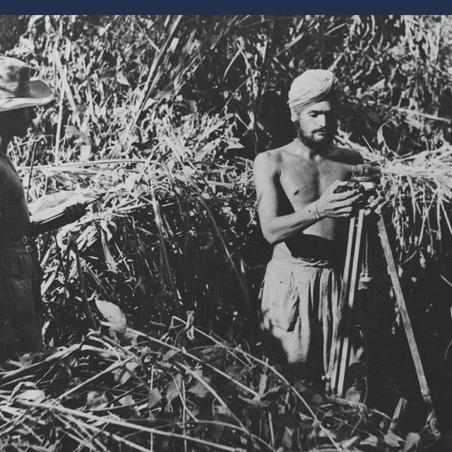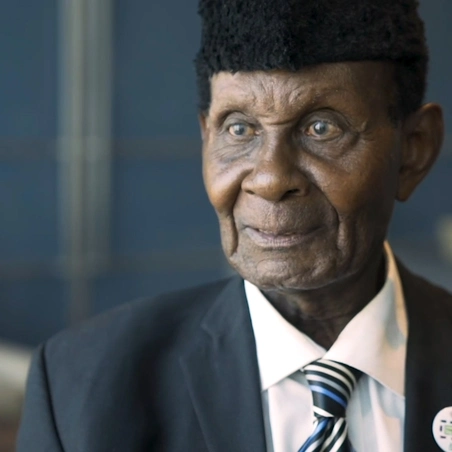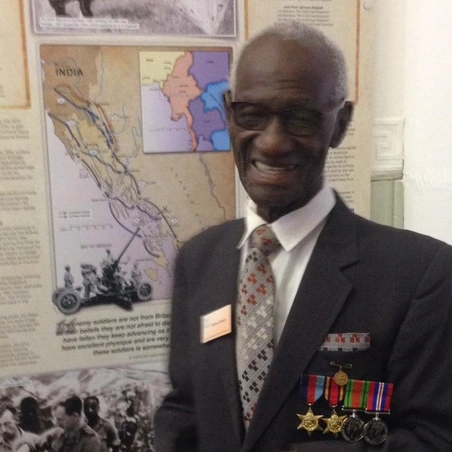Alexander Abraham
When a man complained of a fever, Abraham explained that it was 'probably malaria, but I had no way of diagnosing malaria. I didn’t have any intravenous quinine and I wasn’t able to take any blood slides. So, everything had to be diagnosed on the symptoms alone.'
One day, Alexander was summoned over the radio.
"I was wanted immediately so I sent off in a hurry and I couldn’t take all my equipment, I couldn’t take my mosquito net and very little of the other equipment.
"I had to go on foot and the first part of it was on a jeep, the second part was on a pony and the pony couldn’t go more than 15 miles and then had to be sent back home so I completed the journey on foot.
"When I arrived there, I found the man was almost unconscious. We didn’t have any intravenous quinine so we gave him the quinine by mouth all through the day and night and the next day he was well enough to be evacuated so I evacuated him.
I went with him on a stretcher and of course I didn’t have a mosquito net
"I got soaked in the monsoon rains and when I arrived at the hospital where we delivered the patient, I developed malaria and a short time afterwards lobar pneumonia so they had to stop the quinine in order to give me the treatment for the pneumonia which was MMV693, and the result was that I got a number of occurrences of malaria and I was evacuated to a Welsh Mission hospital.”
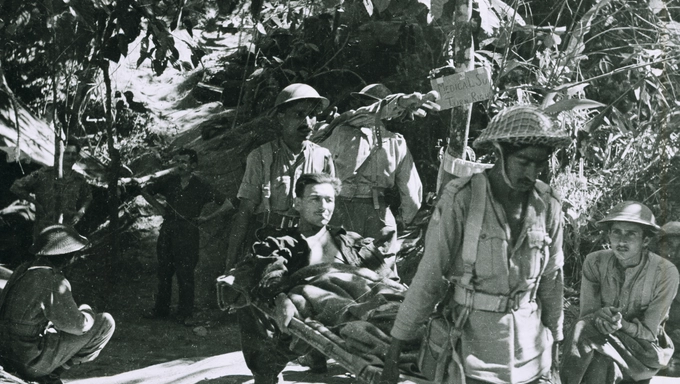
Alexander spent the rest of his time in Burma at the Welsh Mission Hospital before being sent to hospital in Calcutta. Vulnerable, he caught a number of other diseases; amoebic dysentery, then bacillary dysentery, after which Alexander had infectious hepatitis accompanied by jaundice.
“I lost a lot of weight, I felt very weak, it was quite serious, yes. Particularly the amoebic dysentery, I was lucky. The treatment was quite painful, painful injections. Luckily that was brought under control. …When I came back to England I got malaria reactions when, if I got a fever or a cold”. Eventually blood tests showed that Alexander was clear of malaria but he had endured a long period of illness.
Desmond Whyte
Our first number one enemy was malaria. Everybody, one hundred per cent got malaria.
"And certainly, the NCOs were honour bound to ensure that each of the men took his Mepacrine each morning. … the word spread among the Gurkhas that this made them impotent … and we had to try to ensure that that rumour was scotched.
"There was no truth whatsoever in it of course. The yellow eyes worried people, your eyes went yellow with this stuff but except that after six weeks you were so dog tired, putting one foot in front of the other that you didn’t really notice if a man was yellow or not.”
George MacDonald Fraser
"The M.O., whom I shall call McMenemy, accused me of not taking my mepacrine tablets (which was a military offence), but when I pointed out that, like everyone else, I was a rich yellow in colour from swallowing the bloody things, he admitted grudgingly that they were not an infallible prophylactic.
Half the section was feverish to some degree, and scoured by dysentery in its various forms (“Ah ’m crappin’ ivvery colour bar blue” was Grandarse’s diagnosis). We blamed the monsoon, which certainly had one alarming effect: it puckered the skin in a revoltingly puffy fashion, and brought forth a great plague of jungle sores on wrists and ankles. McMenemy painted them purple and gave us constipating draughts…”
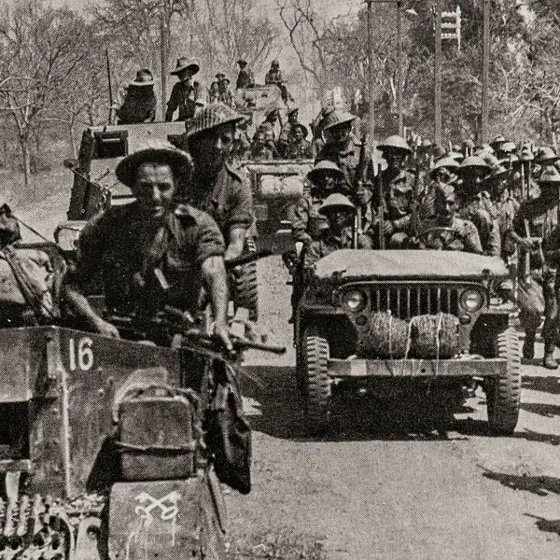
Remembering VJ Day - 80 Years On
The Royal British Legion, in partnership with the UK Government, will host a commemorative event at the National Memorial Arboretum on Friday 15 August to mark the 80th anniversary of VJ Day.
Registration is now closed, but Second World War veterans who served in the Far East can still express interest in attending the event.





